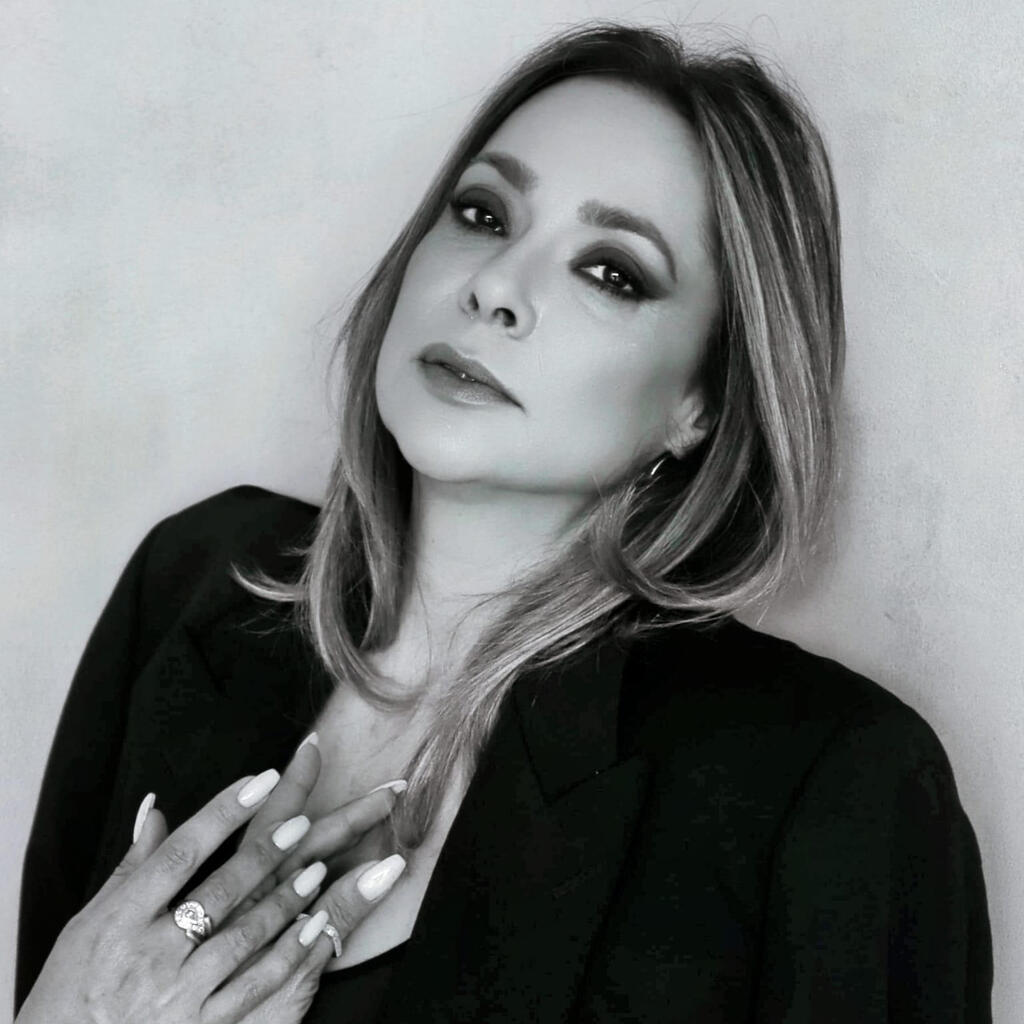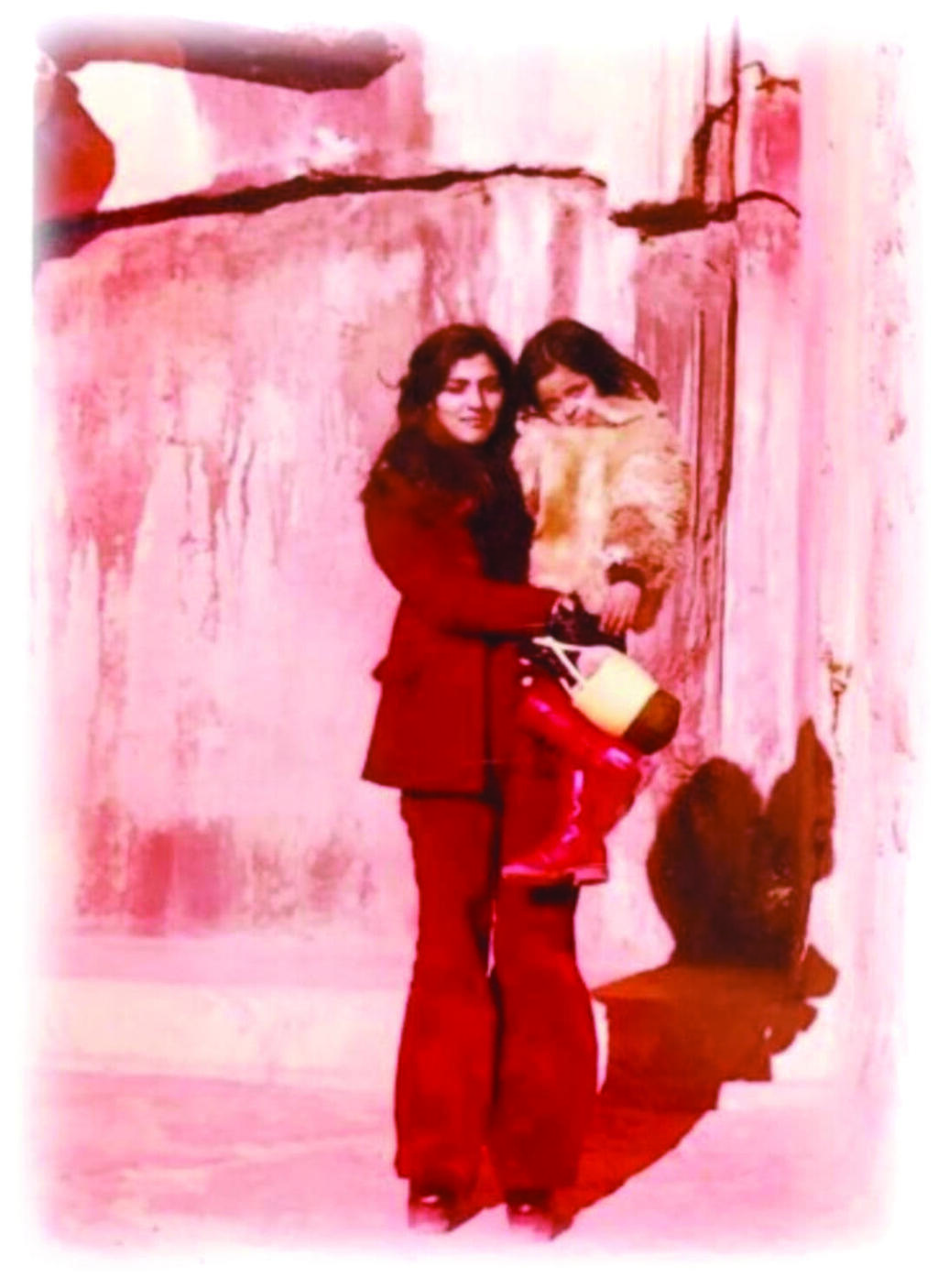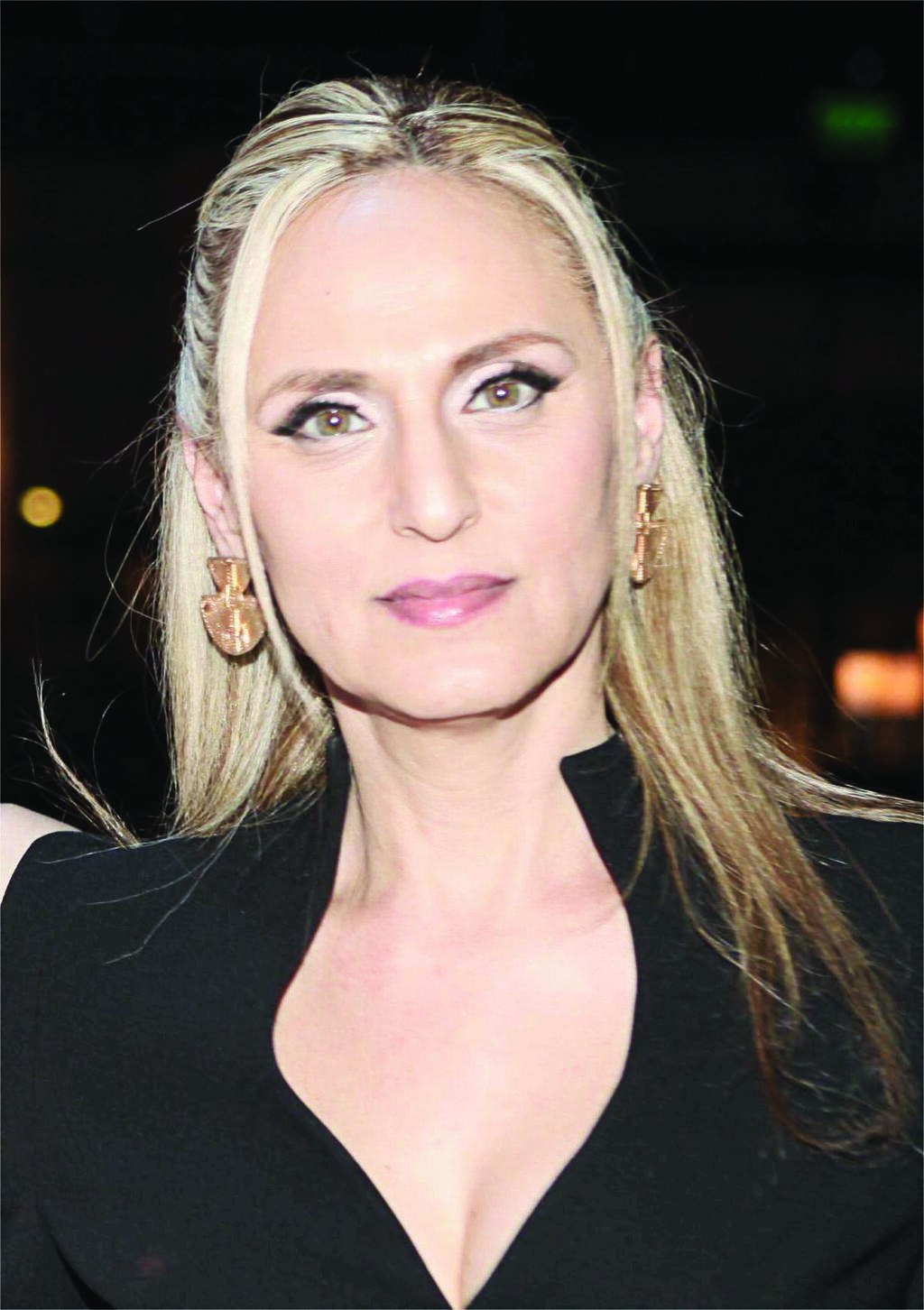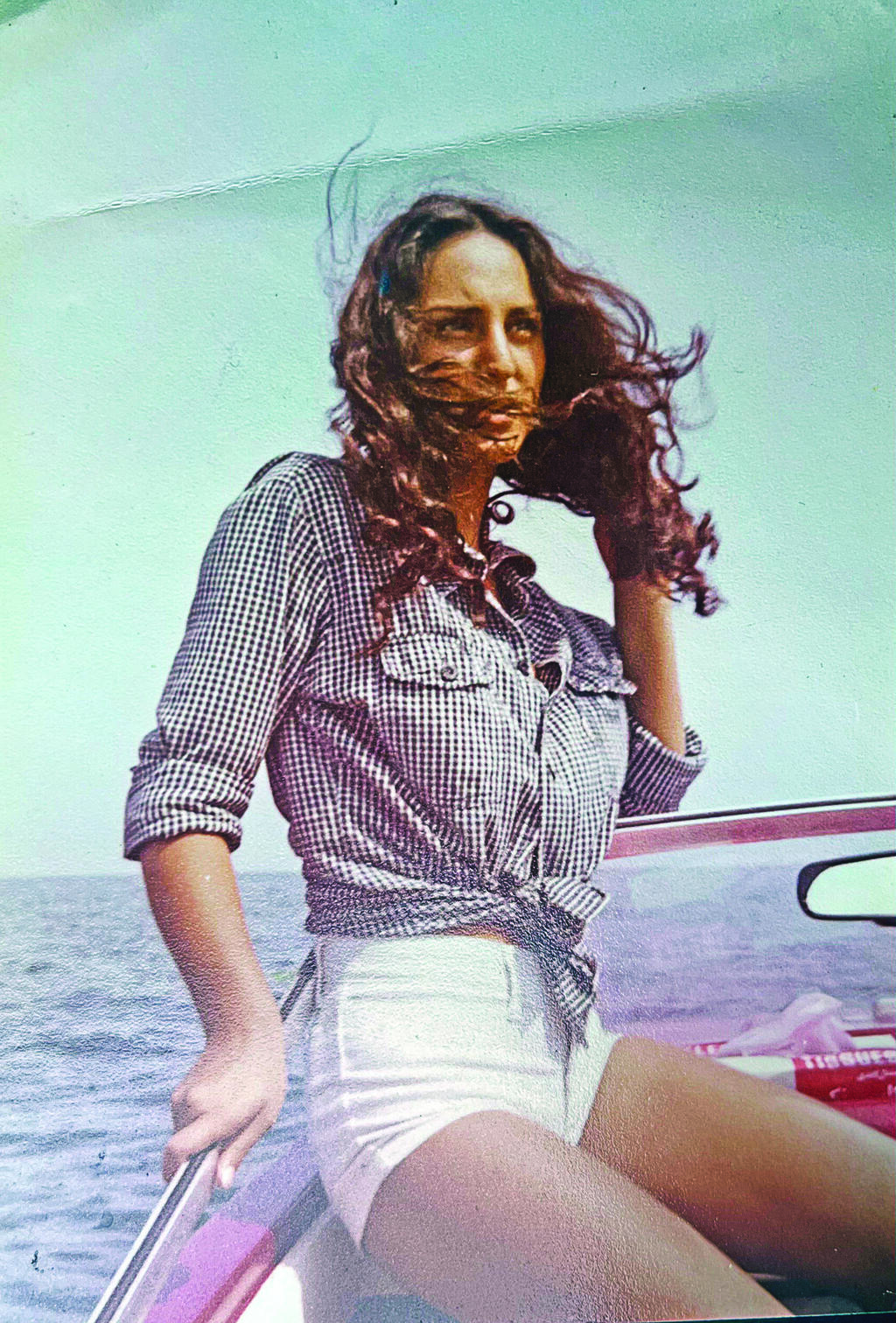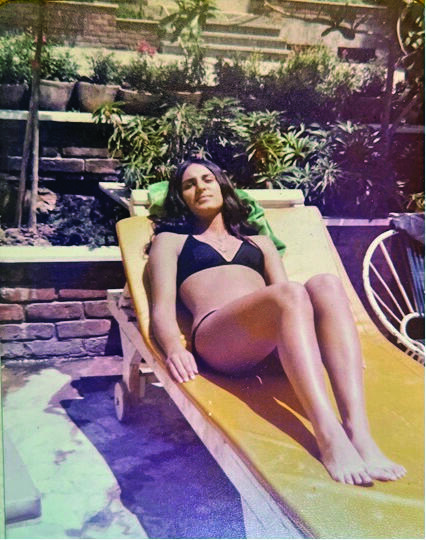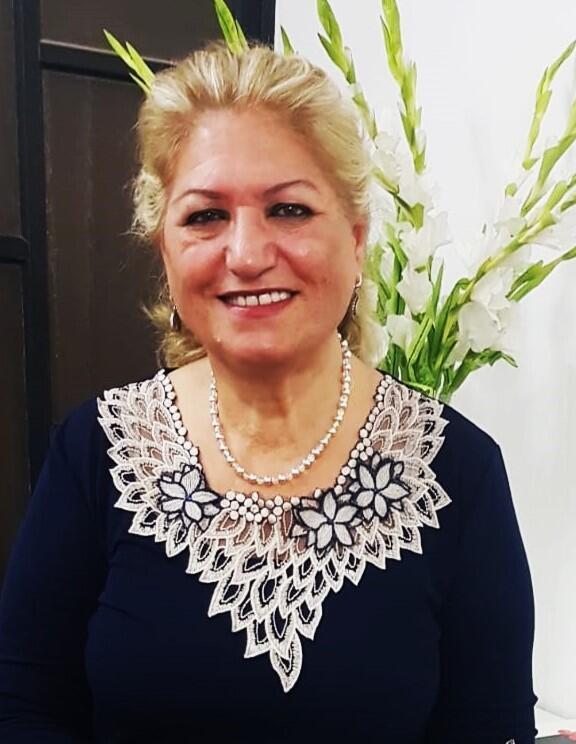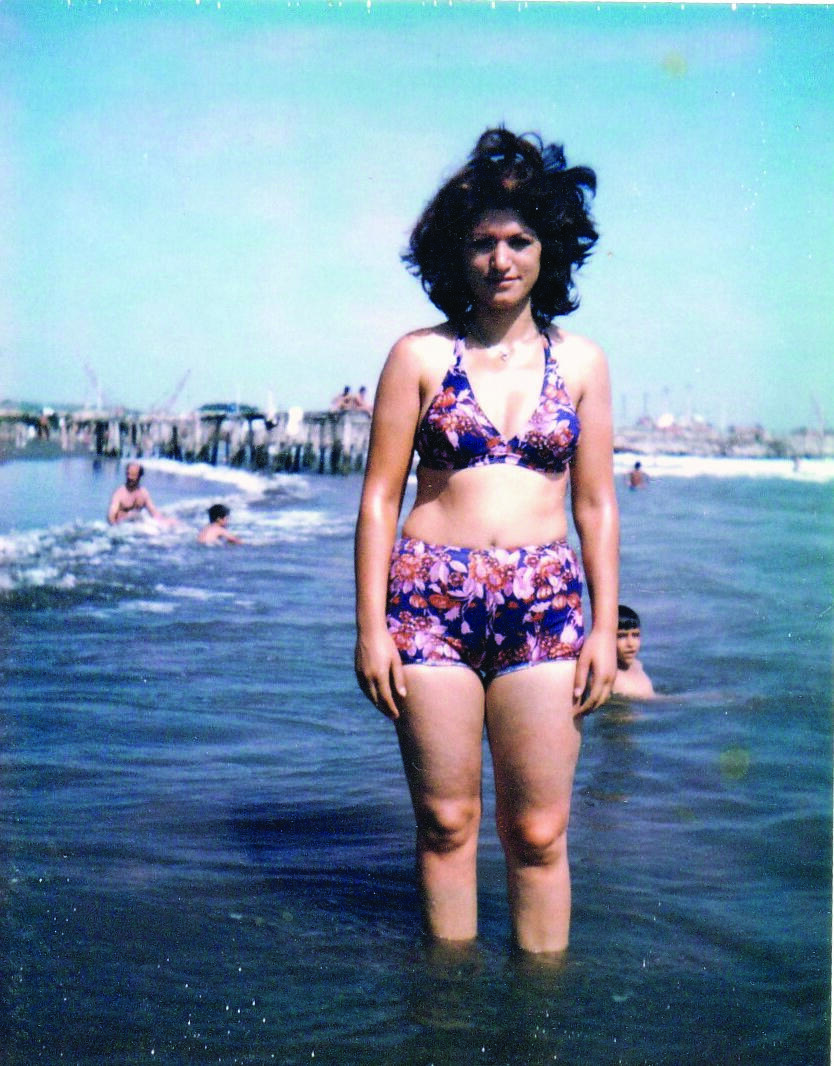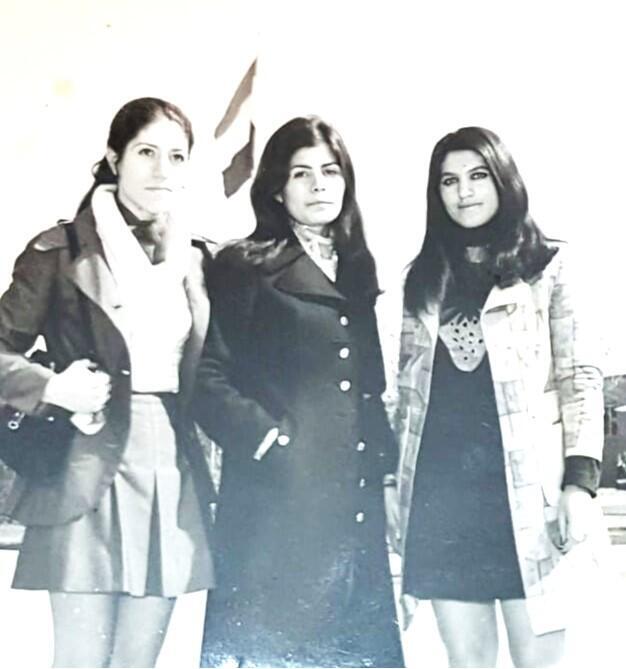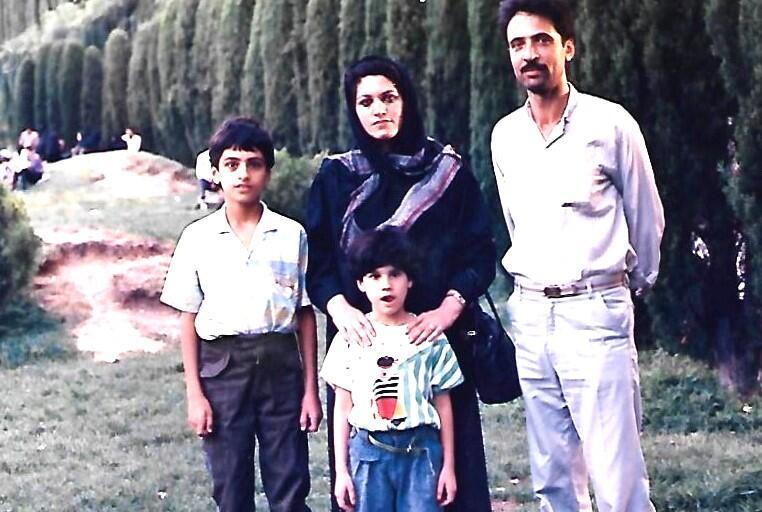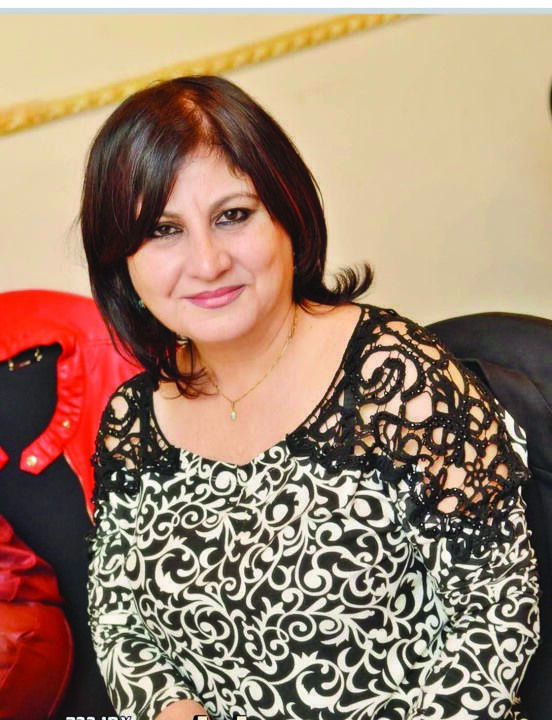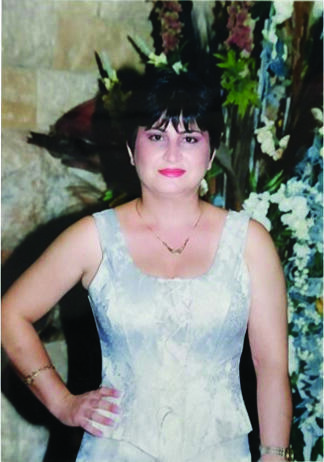‘We wore sleeveless shirts and bell-bottom pants’
Shahrzad Shadi, 53, of Ramat Gan, is in a second relationship, a mother of three, a clinic director, musician, singer, radio host and professional Persian-language declaimer.
Before the revolution: “I was born in Tehran in 1971, in a home filled with music and culture. We lived in a well-off Muslim neighborhood and had excellent relations with our Muslim neighbors. I clearly remember my mother during the Shah’s reign. Iran was like Europe—both in dress and behavior. My mother, Mahin-Sara Yousian, now 74, used to drive. My parents divorced when I was five, and I stayed with my father, grandmother and aunts. When my mother came to pick me up, she was always so glamorous—long, flowing hair and oversized sunglasses. Women dressed entirely in Western fashion: bell-bottom pants, sleeveless tops, knee-high boots and more.”
When the regime changed: “We were suddenly required to cover our hair and wear uniforms—full-body coverings. But we lived in an upscale area, and we tried to hold on to some sense of freedom, as much as we could. We dressed in navy blue and olive green—never red, God forbid—and wore long coats and headscarves over our European-style clothing. Parties were moved indoors. At 16, I was walking down the street with a friend when two women from the Revolutionary Guard approached us. They said our hair was showing under the hijab and told us to remove our nail polish. They took us into a car, gave us a lecture on modesty, and handed us nail polish remover so we could clean our nails in front of them.”
Photos in the album: “One photo shows me with my mother before the revolution. Another shows me at 16, wrapped in a chador (a covering from head to toe), as we were required to dress. Beside it is a photo from when my mother could still wear a swimsuit.”
12 View gallery
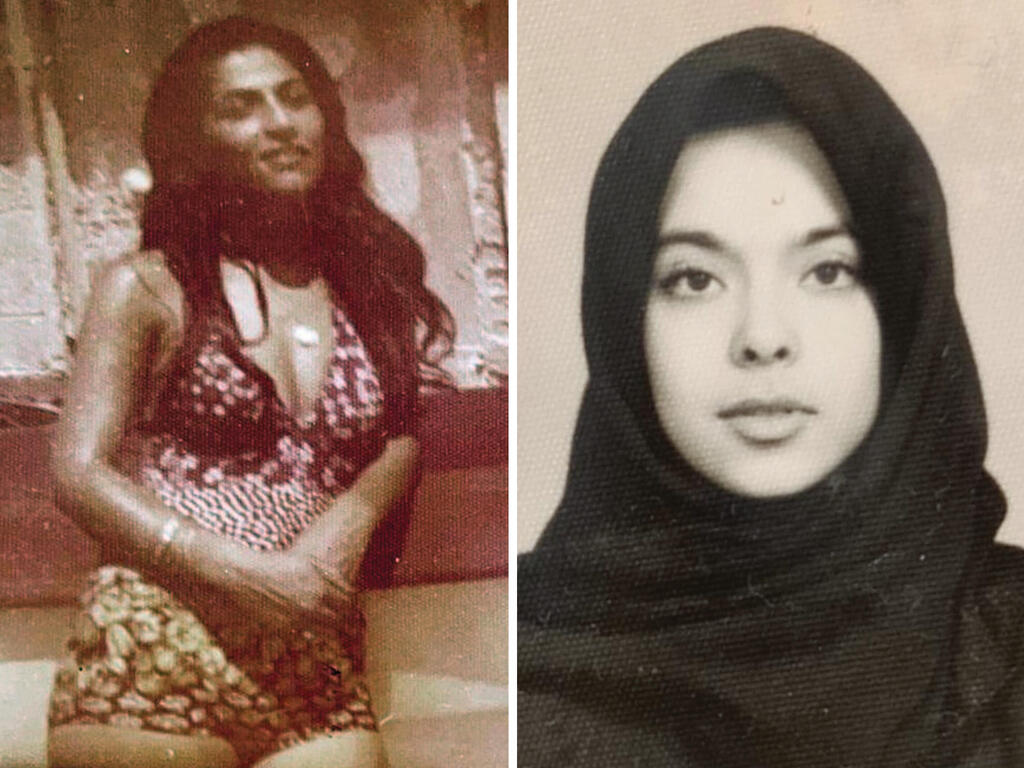

Left: Shadi's mother in swimsuit; left: Shadi, at 16, after the revolution
(Photo: Courtesy)
Immigrating to Israel: “My mother planned to move to the United States. While we were in Vienna, I changed course and came to Israel in 1990. My aunts were here, and my mother still lives in the U.S. My father stayed in Iran for business and promised to join us soon—but it never happened. Four years ago, he passed away in Iran, and my heart broke.”
Iranian friends today: “In recent years, I’ve been in contact with an Iranian couple in Tehran—she’s a poet, he’s a composer—and we collaborate. They write songs, and I sing and record them. One of our songs, JANG (“war” in Persian), was released last year and gained wide exposure on Persian-language social media. The writers remain anonymous for safety reasons. There have been pauses in our collaboration due to the situation, but we keep working together. I hope that one day, we’ll finally be able to meet.”
‘Persian women dressed like in Western magazines’
Miki Turkan Yitzhaknia, 63, from Holon, is married, a mother of three, a grandmother of two, a senior secretary at a law firm and administrator of the Facebook group You Know You’re Persian When– The Flagship Group, dedicated to the Iranian community in Israel and around the world.
From Iran to Israel—twice: “I was born in Tehran under the name Ladan (a flower also known as monk’s hood), the middle child of three. We immigrated to Israel in 1963 when I was two, but returned to Iran in 1973 because my mother missed her family. In 1979, at age 18, we left again—on one of the last direct flights out of Tehran—following the revolution.”
Life before the revolution: “We lived entirely Western lives. Boys and girls my age danced together in clubs, we went to the movies, restaurants, bowling alleys and ice-skating rinks. We wore revealing Western-style clothing. Paris was the fashion model for Persian women—they dressed based on magazines, styled their hair and applied makeup like European women.”
Photos from before the revolution: “They were taken at the Hyatt Hotel on the Caspian Sea, during a family vacation. I was a teenager, and the fact I was wearing short shorts was not unusual. These photos fill me with nostalgia and a longing to relive the Tehran of that era—but also sadness, because it’s tragic what the country now called Iran has become. I’d like to go back one day, but I’m unsure how I’d feel. I fear it would be deeply unsettling.”
A virtual bridge of friendship: “I’ve lost contact with friends from back then, but about ten years ago, Adir Bruchim, the son of Iranian immigrants who came to Israel after the revolution, founded a Facebook group for the Iranian community in Israel and around the world. Its goals are to preserve memories, remind descendants of their roots and build a bridge of friendship with the wonderful Iranian people. Today, the group has around 50,000 members. Following the murder of Mahsa Amini by the Revolutionary Guards, we held a rally that was covered by international media—and even broadcast in Iran.”
‘We partied without limits’
Eti Tzionit Goshen, 73, of Petah Tikva, is married, a mother of two and grandmother of seven. She is a writer of five books, a lecturer and a franchisee of Israel’s national lottery.
Zionist by name: “My original last name is Tzionit. I grew up in the city of Tuyserkan, the youngest of 13 children. My given name was Mahbash, which means ‘moonbeam.’ I moved to Tehran for high school and lived there with my brothers who were attending university.”
Life under the Shah: “There was an Israeli embassy in Tehran, and every Saturday, Jews would pray in honor of the Shah. We had real freedom. We wore short skirts and revealing mini dresses, swam in pools where young men and women mixed and held parties that lasted past midnight—without limits. Think of Israel today—it was even freer, more fun and more elegant. I had a driver’s license at a young age and drove freely through the streets of Tehran.”
Photos in the album: “One photo shows me in a swimsuit with friends before the revolution. The family photo is from 1987, when I was already married with children. Slowly, we were forced into wearing the chador. The colorful clothes disappeared. Everything became black or brown. Life grew difficult, and many Jews left.”
Prison and escape: “During the Iran-Iraq war, my husband, Houshang, and I helped young Jewish men escape using forged documents. Someone informed on us, and we were arrested—each taken to a different prison—and we had no idea what had happened to the other. We were tortured and interrogated, beaten and sentenced to death without trial. But a miracle happened: we kept insisting to our interrogators that we were Muslims. We had prepared in advance in case we were caught—learned verses from the Quran, obtained fake Muslim marriage certificates. Somehow, they believed us.
“After two months, we were released on bail and fled with our children through three countries—Pakistan, Afghanistan and Switzerland—before arriving in Israel. Both of us were recognized as Prisoners of Zion and awarded a medal of valor by the late president Ezer Weizman.”
Longing: “Every day I thank God that I’m in Israel, but I miss my hometown and the Iranian people. We tend to view Iran solely as an enemy state—and yes, it is ruled by a fanatic regime—but the Iranian people are truly good, and my memories are beautiful. I hope one day there will be peace, and then perhaps I can visit my parents’ graves, my hometown and beautiful Tehran.”
‘We’d go out to parks and the boys would join us there’
Phara Perry, 62, from Holon, is divorced, a mother of one and grandmother of five. She works as a dental assistant.
The name Phara: “I’m named after Queen Farah Diba, the wife of the Shah, who was very beloved by the Jewish community in Iran. I was born in Tehran, the youngest of six children. When I was two, we moved from a Jewish neighborhood to a mixed one, where we lived alongside Muslims. Our relationships were incredible—such good neighbors! My mother, who wouldn’t light a fire on Shabbat, would ask our Muslim neighbor to light the tea kettle. I went to a Muslim school, and all my friends were Muslim or Christian. When we made aliyah to Israel, my five closest friends—none of them Jewish—came to see me off at the airport. We all cried.”
Before the revolution: “As a teenager, we wore cropped pants and revealing dresses. We’d go out to parks with our girlfriends, and boys—Muslim boys too—would join us there. The atmosphere was very free. I played on Tehran’s girls’ volleyball team, and we wore sleeveless shirts during matches.
“The restrictions came more from inside the home than outside. My father was strict with us girls. If we were out with friends in the park, we had to be home by dark. When I was 17 or 18 and wanted to shape my eyebrows, he said only after I had a henna ceremony ahead of my wedding.”
Virginity and marriage customs: “Virginity was considered very important. Before the wedding night, the parents would bring a towel to the synagogue to be stamped by the rabbinical authority. After the wedding night, they would invite the groom’s parents to a meal and present the signed towel with the bloodstains, to prove the bride had been a virgin.”
When the revolution began: “I was 16. We started to fear what would happen to us. To avoid suspicion, we went out with our Muslim neighbors, brought cakes and chanted slogans against the Shah and in support of the new regime. Very quickly, we were ordered to go out to our balconies every night and say ‘Allahu Akbar!’ When my brothers didn’t do it, the neighbors warned my mother to tell her sons. From then on, they joined in every night from the balcony, shouting with everyone else.”
Photo in the album: “It’s from before the revolution. I’m wearing the dress I wore to my brother’s wedding. When I look at it, I feel both longing and sadness. We had a very good life there.”
New restrictions: “The first things to be banned were alcohol, mixed gatherings of boys and girls and revealing clothing. When my parents saw the changes coming, they decided to make aliyah. We moved to Israel in the early 1980s, but didn’t sell any of our property. My father believed the new regime would fall within months and we’d return. A few months later, we actually did return—to attend my oldest brother’s wedding to a Jewish girl in Iran. We returned quietly to Israel through Greece, because the gates between Iran and Israel had already closed.”
Family that remained: “We’ve stayed in touch. We send photos and talk regularly. Before October 7, I was on a group tour in Turkey and arranged to meet a relative I hadn’t seen in 30 years. It was an incredibly emotional reunion.”


